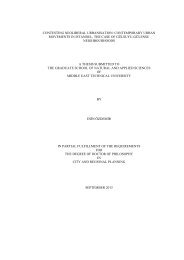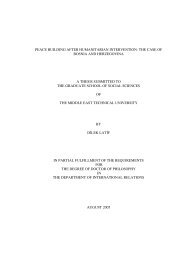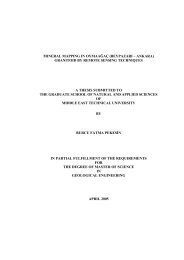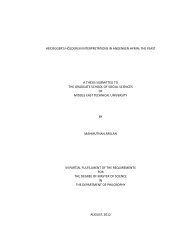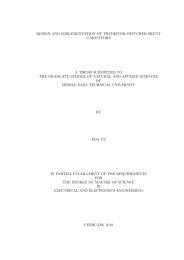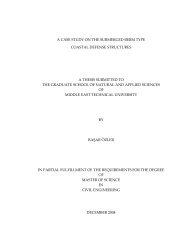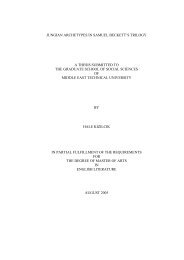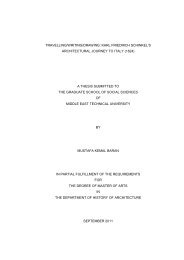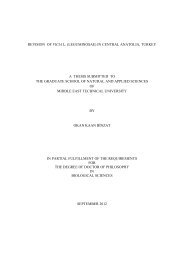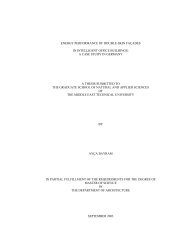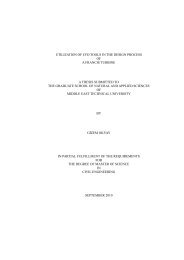View Original - Middle East Technical University
View Original - Middle East Technical University
View Original - Middle East Technical University
Create successful ePaper yourself
Turn your PDF publications into a flip-book with our unique Google optimized e-Paper software.
their journal Economies et Sociétés) and Paul Boccara and his fellow communist<br />
economits’ workshop at PCF.<br />
This said, regulation theory has truly been an industrious and seminal political<br />
economic paradigm. Especially through later state-theoretical and space-theoretical<br />
regulationist studies, one can peer into the ever-changing threshold of future research<br />
and steal a backward peek at the large extent of already finalised collective research<br />
within that paradigm. However, regulation theory contrasts, so to speak, with its<br />
counterparts that has likewise been profusely avant-garde in that ‘[w]e must speak of<br />
an approach rather than a theory. What has gained acceptance is not a body of fully<br />
refined concepts but a research programme’(Aglietta 1998:42). This ‘endogenous<br />
process of cumulative research’(Vidal 2001:45) design of regulation theory is all too<br />
well, but it, on the other hand, ulteriorly sabotages any ardent effort toward putting<br />
regulation theory in its place. Some thirty-year long passage of collective as well as<br />
solitary soul-searching within that scientific study with very substantial makeovers<br />
and not-so-provisional discontinuities, to some extent, has most likely extirpated the<br />
basis for a latent or otherwise selfness of regulation theory. ‘Indeed, the variations are<br />
sufficiently different and numerous to support viewing Regulation Theory not as a<br />
single approach but as a cluster of approaches unified by “family resemblances” but<br />
no core’(Albritton 1995:201). The really unpleasant circumstance here is more than<br />
the fact that regulation theory is increasingly a misnomer for the disorderliness and<br />
plethora of studies that analyse the régulation of capitalist economies, the downside<br />
here, on the contrary, which broods all regulation theory as such is the fact that<br />
theoretical openness may sometimes rebound. The openness of regulationist research,<br />
as long as this is de novo a non-negotiable epistemological asset of regulation theory,<br />
thereby anticipates a strategy of putting regulation theory in its place prospectively,<br />
which must touch upon the extent to which ‘search and search again!’ motto(Boyer<br />
2002:54) of regulationist method has or has not indeed sulked into an obnoxious<br />
idealism.<br />
2



